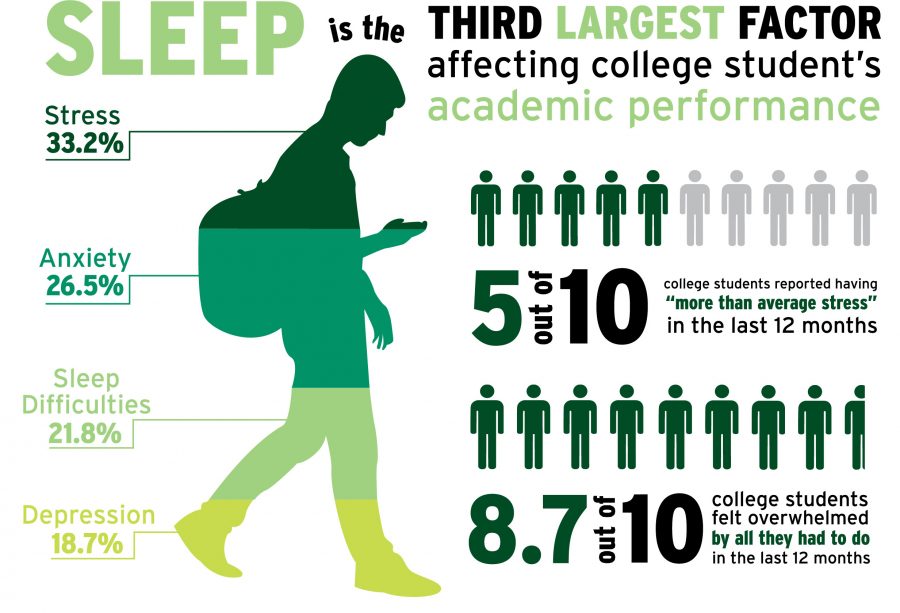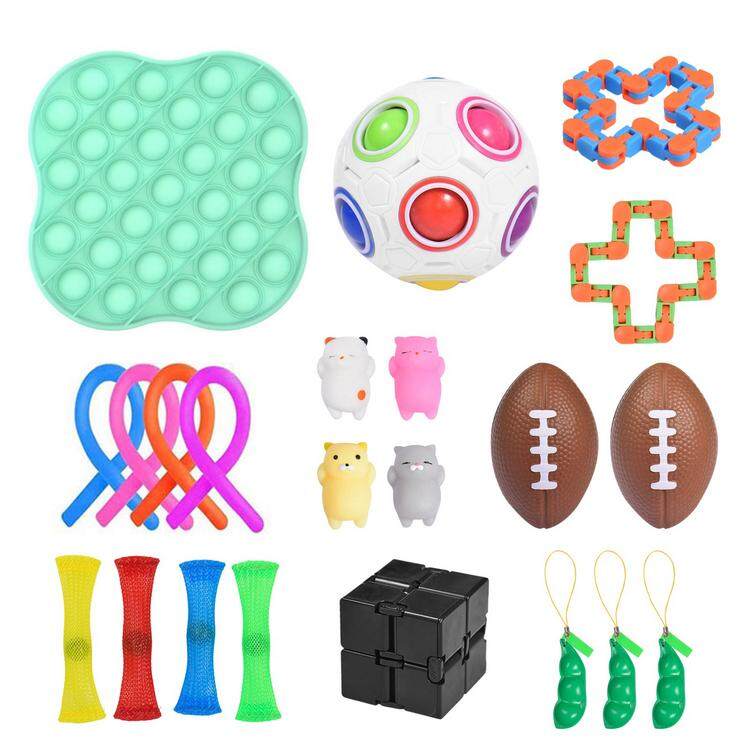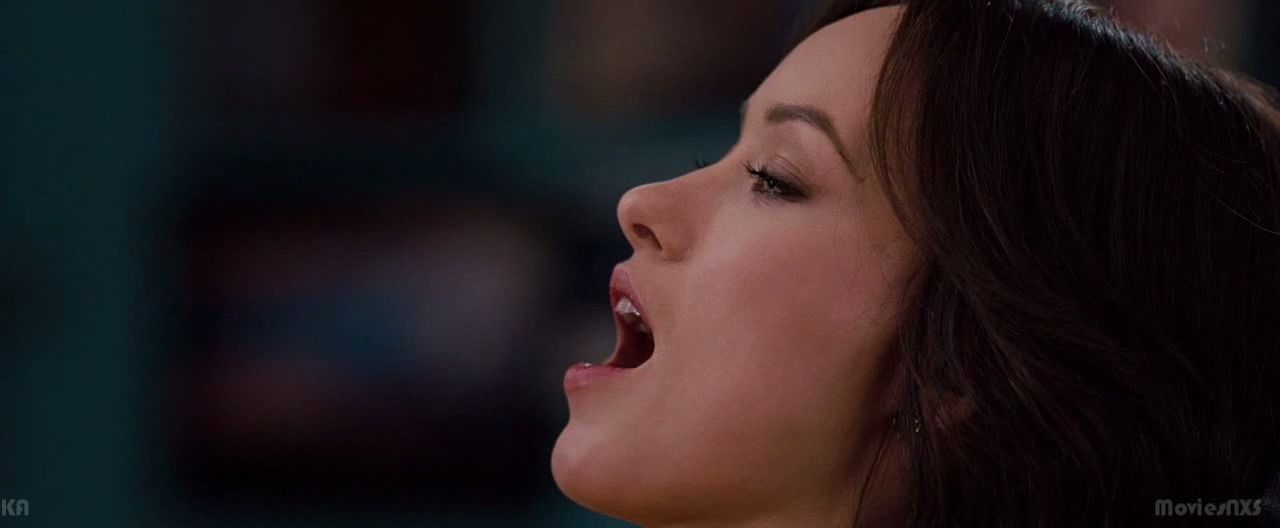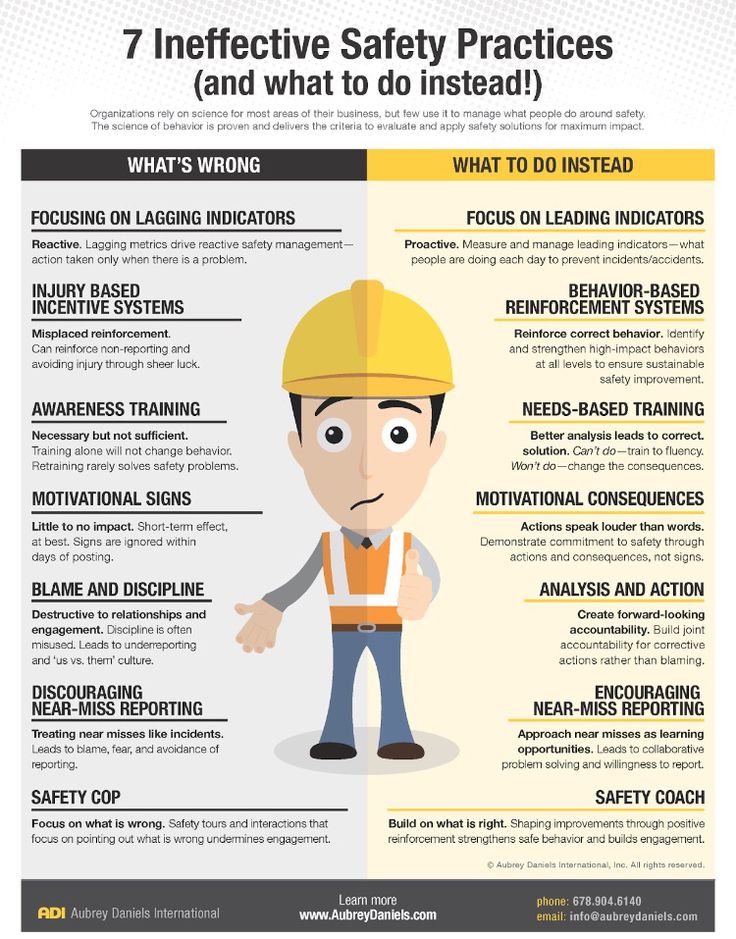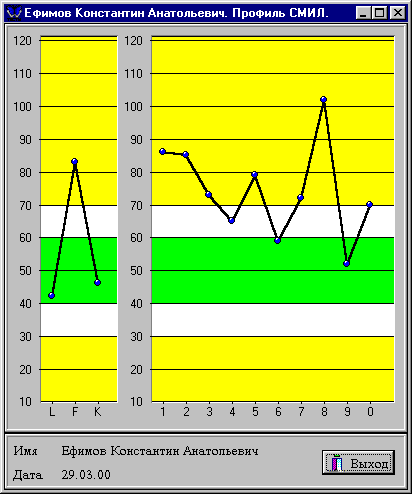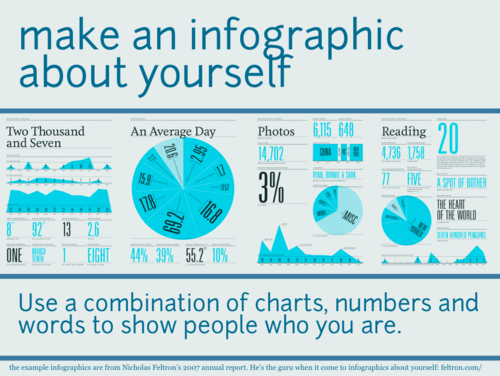Uncertain about relationship
The beauty of uncertainty in relationships
Ready to take the initiative & join our newsletter?
Sign Up Now
Love & Relationships
5 tips for when you are unsure about a relationship Posted by:
Team TonyWe’ve figured out how to control most things in our lives – our bodies, our weight, our work. But relationships? That’s something different altogether. We can’t control someone else’s heart, and because of that, there’s always a certain amount of uncertainty in relationships.
Sadly, it is this uncertainty that causes many of us to put up walls and push others away. Rather than face why they are unsure about a relationship, many people shut down completely. This is because at its core,
our need for certainty is a survival mechanism, and in uncertain states, we do what is necessary to protect ourselves and our hearts. But when we learn how to deal with uncertainty in relationships, it is in this space that our ultimate spiritual growth evolves – and where we can find more joy and happiness than anywhere.
Most uncertainty in relationships is caused by fear, whether rational or not. You may fear being vulnerable with your partner and being rejected. Insecurity is another common form of fear that leads to uncertainty – when someone is insecure, they may fear their partner is cheating or no longer loves them, no matter how many reassurances they’re given.
Uncertainty can also be caused by a lack of communication. Have you and your partner discussed what your shared future looks like? Are you aligned on your dreams and goals? Are you confident that you have similar values and beliefs that will ensure you grow together, not apart?
Finally, comparing yourself to others is bound to cause uncertainty in relationships. When you look at the world of celebrity and social media, all you see is happy, smiling couples, and you start to wonder, could my relationship be better? If you want to know how to handle uncertainty in a relationship, remember that no one is perfect – and stop comparing yourself to them.
Some uncertainty in relationships is entirely normal and can even be exciting. You wouldn’t want to plan out every day down to the last second, would you? Uncertainty that is only occasional is also nothing to worry about. If you feel uncertain only after an argument or when you’re in a state of anger or fear, it’s likely those emotions that are causing your doubt.
However, uncertainty can also be a red flag. If you’re feeling uncertain nearly all the time, even when things are going well, there could be something deeper going on. Certain relationship dynamics, like on-again, off-again relationships or those that are very unequal, are also unhealthy. Learn about healthy relationship rules so you can determine whether your uncertainty is normal.
How do you use uncertainty in a relationship?So just how do we overcome the innate urge to self-protect during periods of uncertainty? How do we learn how to surrender control to trust and faith? What’s the best way to learn how to deal with uncertainty in a relationship?
You do this through understanding, practicing and mastering the skills that are critical to your success in finding, nurturing and creating an outstanding relationship. There is a lot to learn and appreciate about the needs, feelings and behaviors of yourself as well as your partner – and, most importantly, how to use these understandings to best support your partner and your relationship.
There is a lot to learn and appreciate about the needs, feelings and behaviors of yourself as well as your partner – and, most importantly, how to use these understandings to best support your partner and your relationship.
How do you protect yourself from feeling pain? Do you give your partner the cold shoulder? Do you hold back love? When we’re unsure about a relationship, we often engage in unhealthy behaviors that push intimacy away.
Becoming aware of your behavioral patterns makes it easier to recognize them when they arise and helps you achieve a more objective viewpoint when emotions take hold. Recognizing your triggers and patterns is just the first step – next, you must share this information with your partner.
Open up to your partner about what you need in order to release your inner withholding and connect. Let your partner play a supportive role in helping you work through your fears and finding a new approach to any destructive patterns.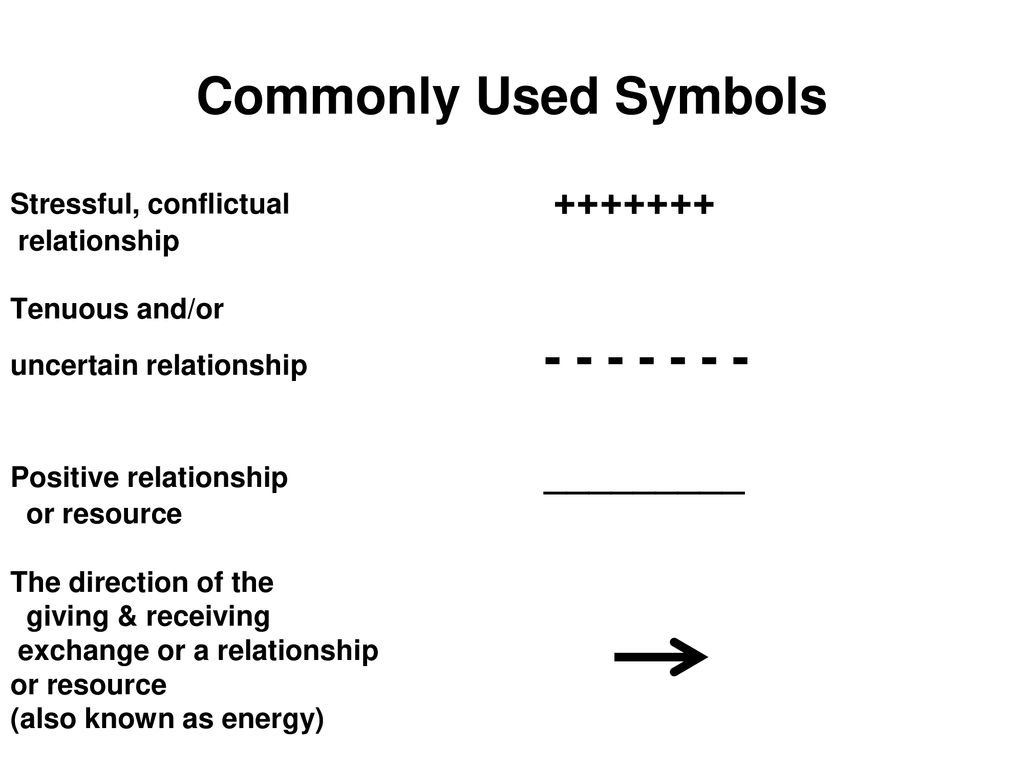 You may be surprised just how much more trust this can create. Communicating openly, and not just talking but really communicating with your partner, can erode much of the uncertainty in relationships.
You may be surprised just how much more trust this can create. Communicating openly, and not just talking but really communicating with your partner, can erode much of the uncertainty in relationships.
Learn to give without the promise of getting. As Tony says, “The secret to living is giving.” Learn to receive your greatest joy from seeing your partner fulfilled. Find out what drives your partner, what they are hungry for, what their goals are. Find out what their pains are. Don’t be in a relationship just asking what you can get from your partner. Open up and give this person your love and honesty and put aside your desire for getting something in return.
For example, look your partner in the eyes and ask them to explain what makes them feel loved. Honor and accept their answer as the truth and don’t attempt to change their needs to match yours. Remember, you love this person for who they are – and not who you want them to be. When you fully accept them just as they are, they will reward this with more openness and a deeper level of intimacy.
Learn to choose trust and faith, even when you are unsure about a relationship. Stay, even when everything in you wants to run. No matter what, believing that your partner has only positive intent is key to how to handle uncertainty in a relationship.
When you feel yourself reacting to your partner as if they are doing something “to you,” observe your reaction and trust their intention. Rather than reacting, open up and see what they need at that moment to feel loved. Focusing solely on their needs in the moment is one of your best options when it comes to how to deal with uncertainty and allows you to start the process of letting go.
4. Never punishPunishment is a form of control and a common reaction to uncertainty in relationships. When our partner treats us in a way we don’t like, our immediate plan is to show them how much it hurts so they don’t do it again. This results in punishment such as accusations, the “silent treatment,” withholding of affection or acting out in a way that is meant to hurt them in return. However, punishment never works. Instead, it pushes the other person further away and begins creating mistrust.
However, punishment never works. Instead, it pushes the other person further away and begins creating mistrust.
The solution when we are hurting is not to punish – it’s to understand how to deal with uncertainty in a relationship by practicing love and acceptance. It seems counterintuitive, but when we show our partner that we still love them and want to understand why they did what they did, we are taking another step toward deeper intimacy.
5. Live consciouslyLastly, treat your partner as you yourself would like to be treated. Be the example of what you want in a partner. Step back and feel what your partner is feeling and be present for his or her pain. At the same time, recognize their unique needs. This will help you stay connected and increase the sense of fulfillment in the relationship.
For example, instead of demanding from your partner, decide to go first in providing what they need. Discover what you must do for them to feel safe being vulnerable and loved in your relationship.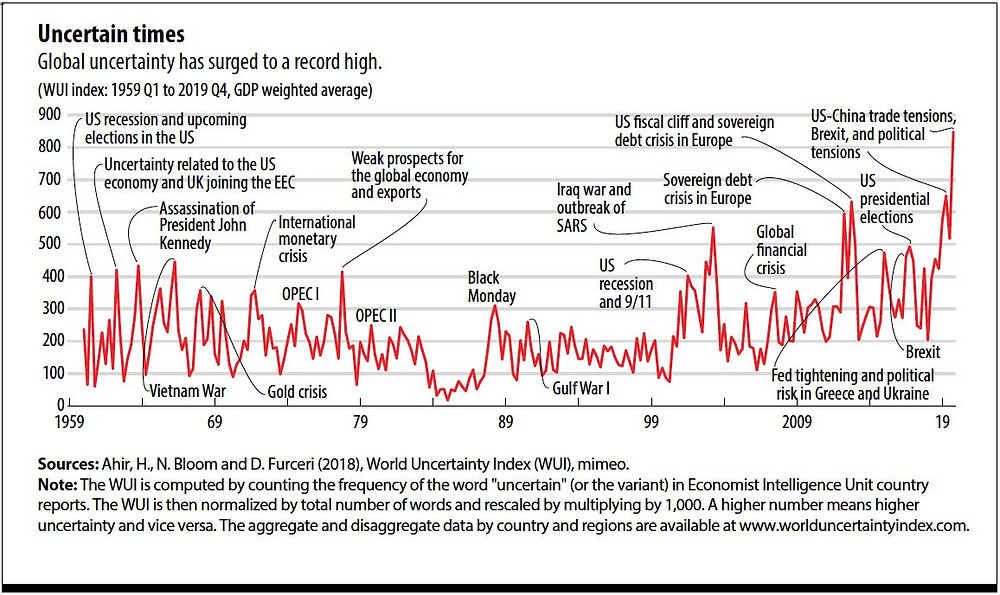 And when your partner is in distress, commit to listening with absolute compassion, with the sole goal of helping alleviate their suffering. Understand that uncertainty in relationships is not only normal, but it’s an opportunity to rise to the challenge of trusting and letting go of the outcomes you believe would be best.
And when your partner is in distress, commit to listening with absolute compassion, with the sole goal of helping alleviate their suffering. Understand that uncertainty in relationships is not only normal, but it’s an opportunity to rise to the challenge of trusting and letting go of the outcomes you believe would be best.
Remember, you can wonder how to deal with uncertainty in relationships all day, but the only thing you can control is yourself: your actions, your reactions, the choices that you make in your relationships every day. Embrace the power you do have to shape the dynamic of your relationship, and you will get one step closer to creating true peace in your relationship.
Team Tony
Team Tony cultivates, curates and shares Tony Robbins’ stories and core principles, to help others achieve an extraordinary life.
featured collections
related posts
close
Join Our Newsletter!
By entering your information on the Tony Robbins website, you agree that we may collect and use your personal information for marketing, and for other purposes, as set forth in our Privacy Policy, which we encourage you to review.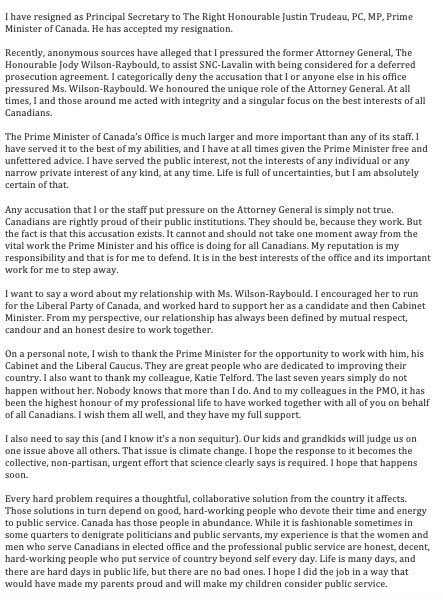
close
Free Gender Quotient Assessment
Click Here to Take this Free Quiz
[ad align="right"]
[mobilead]
By entering your information on the Tony Robbins website, you agree that we may collect and use your personal information for marketing, and for other purposes, as set forth in our Privacy Policy, which we encourage you to review.
This website uses cookies to personalize your experience and target advertising.. By continuing to use our website, you accept the terms of our updated policies
Those with Uncertainty about Their Relationship
//in CouplesHow do you move forward in a relationship when you have uncertainties? Should you even be thinking about moving forward in the first place?
Doubts and uncertainty can occur at any time during a relationship. Feeling uncertain about a future with your partner is frustrating, and it makes sense that you would like some certainty about where you want things to head in your relationship.
Maybe you crave stability. Perhaps you just don’t want to be back in the dating scene, so you stay even though you’re uncertain if they are the right partner for you. Are your doubts about what other people will think? Are you holding yourself back because your family or friends might not like your choice? How do you reconcile their expectations with your desires? Maybe you feel like it’s selfish to pursue what you want to do.
Or, is your uncertainty a red flag?
Sometimes uncertainty can mask truths we don’t want to acknowledge. You may see your partner’s possessiveness as a sign of love, but is it? Or, is it an indication that they can’t form healthy relationships? Every abused spouse overlooked early signs of the abuser’s nature.
If you make excuses for your partner’s actions, or if you’re afraid to tell your friends about some of the things your partner does, it may be a red flag that there is something wrong with the relationship. Do you chalk major disappointments up to poor communication without being sure the deception wasn’t deliberate? Could those disappointments be signs of dishonesty?
“Do I want a great relationship, or will any relationship do?”
If you’re not certain about who you are and what you want from life and your relationship, you may give up too much. You might settle for less than you want and need because you’re not certain your partner, or any partner, can give you those things. You’d rather have the relationship than have whatever it is you’re giving up.
You might settle for less than you want and need because you’re not certain your partner, or any partner, can give you those things. You’d rather have the relationship than have whatever it is you’re giving up.
Or maybe you change in order to please your partner because you’re not certain they’ll stay if you aren’t exactly the way they want you to be.
You wonder if you’re settling or if there really is someone better for you out there. Perhaps this is as good as it gets. Or if someone better exists, would you ever actually find that person?
Maybe you distract yourself with work or hobbies until you realize another year has gone by and your relationship isn’t any more satisfying than it was last time you admitted to yourself you weren’t happy with it. Could things really be better? Should you give it more time? Is it okay to move on even though things are okay, but not great? How do you decide? And how do you even go about improving things, if you opt to stay in it?
If you find yourself feeling unsure about your partner’s commitment to you, you may be right that they aren’t committed.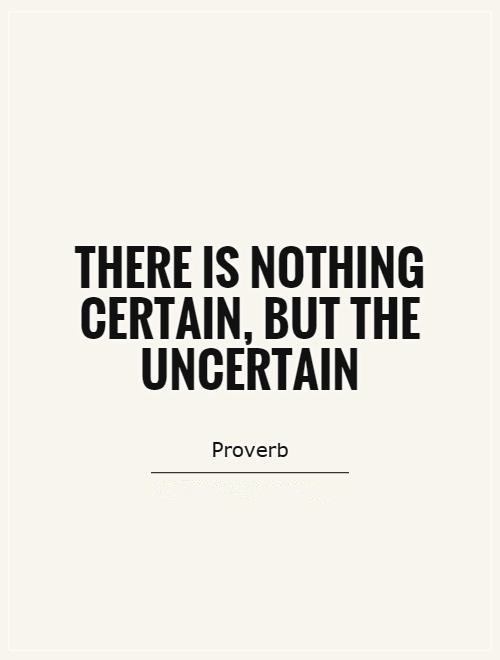 Or it could be that you don’t feel lovable enough to believe in the commitment they have made to you. How can you tell the difference?
Or it could be that you don’t feel lovable enough to believe in the commitment they have made to you. How can you tell the difference?
Or maybe it just seems easier to stay with the status quo even though you aren’t happy, which can be a sign that you’re in an uncomfortable comfort zone. If this is the case, things won’t get better without a disruption of some sort. Proactively addressing it is a gentler way of making change than what happens when the pressure builds without relief.
Although uncertainty in relationships can be quite normal, feeling unsettled and doubting your relationship can make you anxious, restless, and unhappy. You know you can’t control them; you can only control yourself. The less you trust your ability to be okay regardless of what your partner does, the more disruptive uncertainties will feel.
Having doubts about your relationship can be a sign that something is not as good as it could be – in your relationship, within yourself, and often both.

In this situation, the changes that are best are different for everyone. There is a balance to be found between uncertainty and taking your partner for granted.
When It’s Time to See a Professional
Exploring your doubts and uncertainties about your relationship with a professional will ultimately lead to positive changes. Those changes may mean you find ways to be more comfortable with uncertainty or that you decide to make a bigger transformation in your life. You may decide you want to stay with your partner but not as you are, so you begin pursuing ways to build more intimacy and tighter bonds.
At Affinity, we have the experience to help you figure out what you really want from your relationship and to move forward confidently in your decision. Take the first step to clarify your relationship goals by contacting us today.
https://affinitypsych.com/wp-content/uploads/2019/05/uncertainty3.jpg 835 1250 https://affinitypsych.com/wp-content/uploads/2019/09/AffinityLogo.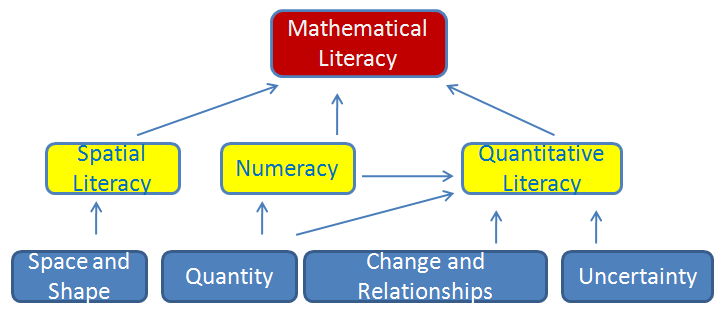 png 2021-07-28 16:29:402021-08-01 16:31:55Those with Uncertainty about Their Relationship
png 2021-07-28 16:29:402021-08-01 16:31:55Those with Uncertainty about Their Relationship0 replies
Leave a Reply
Want to join the discussion?
Feel free to contribute!
what to do if you are not sure about your partner?
No doubt: what to do if you are not sure about your partner?PsychologySubscribe
Group 7Created with Sketch.It is normal to doubt, we do it almost every day, for various reasons, but when doubts creep into a relationship, the love story becomes more and more like a psychological thriller. Someone tries not to notice this, and someone prefers to immediately move away at the slightest uncertainty in a partner. We tell you where doubts come from and what to do with them.
Reasons for concern
There are many reasons for doubt, and each will have their own. Too long a response to a message, a rash comment, disagreement about which "Spider-Man" is the best, or, conversely, the complete absence of disputes and conflicts - all this can lead to thoughts that it is better to end the relationship with this partner right now.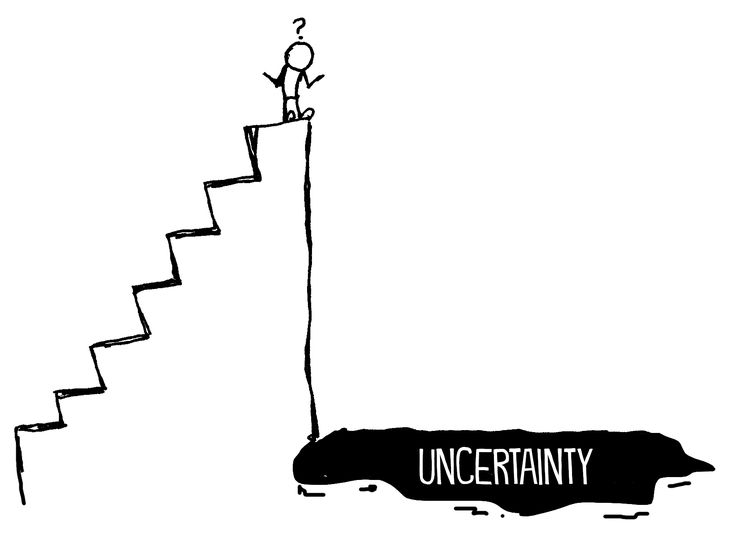 However, there are several common causes that make people feel anxious and insecure about their partner.
However, there are several common causes that make people feel anxious and insecure about their partner.
Fears
This is a fairly large group, this includes: fear of loneliness, fear of loss of individuality, fear of intimacy, fear of losing a partner, fear that a partner will be an abuser. In this category, there may be all the horror stories associated with relationships, as well as experienced traumas taken from previous relationships.
Discrepancy between expectations and reality
At first, he/she talked about how he/she hates pizza with pineapples, but recently you saw a box from under this very pizza in your kitchen. This, of course, is a caricature situation, and sometimes circumstances are much more serious. In some situations, the realization that the partner is not the person he seemed to be at first can be absolutely a red flag, but sometimes a change can be a sign of development. Of course, this does not apply to 100% reasons for concern when a partner begins to show cruelty, disregard for your personal boundaries, and other unsafe traits.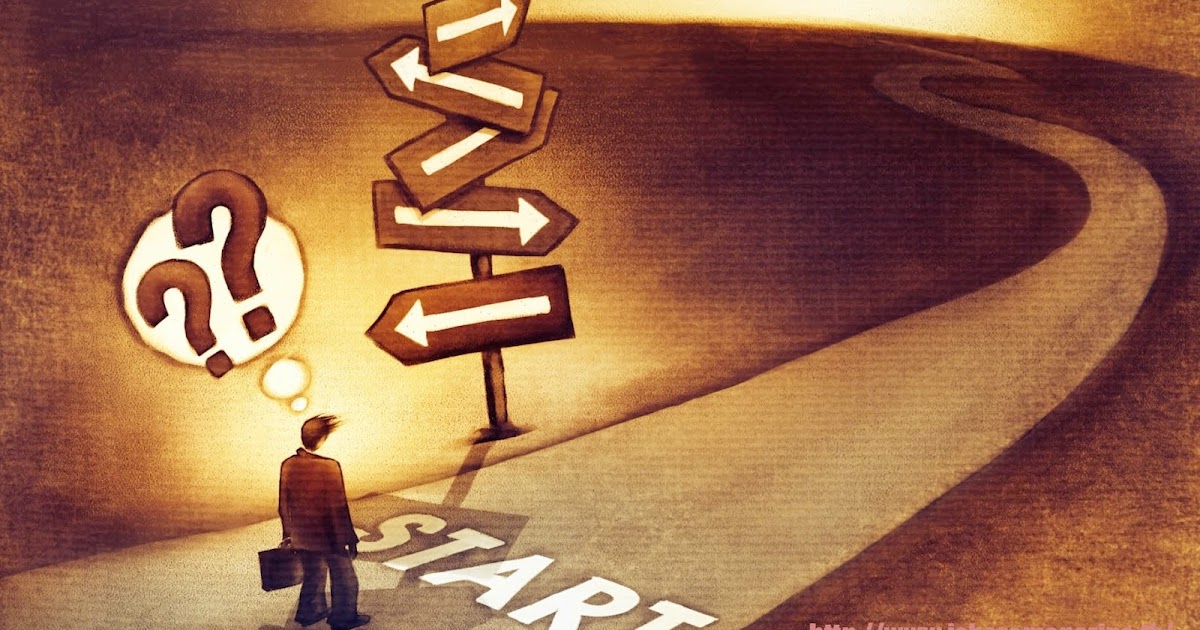
Sometimes the difference between expectations and reality concerns not so much the person with whom the relationship is built as external circumstances. One of the partners may have expectations that they will travel around the world together with two tents and a dog, but in reality both work (and on different schedules) and see each fifth full moon when the stars converge in the desired pattern and the weekends coincide.
And sometimes expectations are the very picture of an ideal relationship. So, according to one partner, the “right” relationship will be where there are no conflicts, and in a situation of the slightest disagreement, he will feel uncomfortable.
Mismatch of values
In the early stages of a relationship, this may not be as much of a concern, but over time, a discrepancy in values may become more and more cause for concern. Values and interests can relate to everything: responsibilities in a couple, relationships with money, or plans for a joint vacation. Not all partners are ready to give up their preferences, which can also lead to conflicts and even regret about the choice made.
Not all partners are ready to give up their preferences, which can also lead to conflicts and even regret about the choice made.
It is relatively easy to start doubting a partner, but you can slide into the abyss of uncertainty due to inertia from doubts. After all, there are so many people in the world, and among them you can definitely find at least one or two with whom you can match in values and injuries and continue to happily move towards a brighter future. However, everyone who has used a dating app at least once knows that you can search for that very ideal instance indefinitely, and each time it will seem that only one swipe is left before it. But even a colossal number of hours spent searching for the ideal potential partner will not eliminate doubts in the end.
Live with doubts or get rid of them?
Complete rejection of any doubts can play a trick on you. In the end, it is doubts that protect you from suspicious adventures or giving your payment details to phone scammers.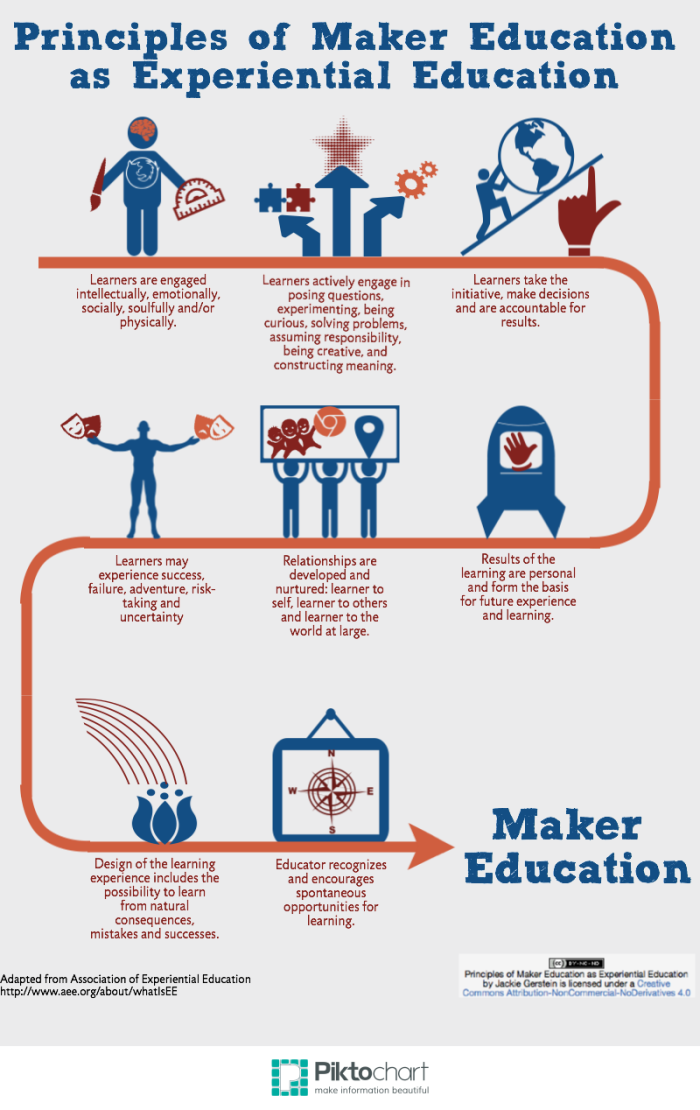 However, in order not to slide into paranoia, you need to learn to understand your doubts.
However, in order not to slide into paranoia, you need to learn to understand your doubts.
Formulate your expectations regarding the relationship and partner
This will save you from thinking and endless sorting through all the people on earth in an attempt to find love at first sight. Understand initially what you want, and select a partner already in accordance with your request.
Negotiate on the beach
If you are planning a long-term relationship, it is better to discuss these plans at an early stage. This does not mean that you need to immediately set the date of marriage registration and choose names for future children. First, discuss what is acceptable or unacceptable for you in a long-term relationship, as you generally see them. Remember that in the course of life, both you and your partner may change goals and values.
Listen to yourself
Sometimes doubts are appropriate and natural, for example, in a situation where the actions of a partner are fundamentally at odds with words and promises. And sometimes doubt is a constant state of one of the partners, and sometimes professional help may be needed to get out of it.
And sometimes doubt is a constant state of one of the partners, and sometimes professional help may be needed to get out of it.
Remember that not all doubts are necessarily grounds for ending a relationship. Talk to your partner openly and about everything, because it is honesty and sincerity that will help you decide whether to continue this relationship.
Alexandra Ivanitskaya
Tags
#Psychology
#Erudition
See also
Psychology
Axiety, Hope and Faith: Three Personal Changes
Psychology
with hope for the best: why are the optimists take you?
Psychology
What is rigidity and why do some people feel like their time is up?
Psychology
The era of self-sufficiency, or why we no longer need other people
Psychology
Quiet with yourself: what is the inner voice
Psychology
Doubt about your partner? What to do
Consciousness
9/10/2020
Reminder letter
Uncertainty in love from a neurobiological, sociological and psychological point of view
Külli Kittus / Unsplash
This is a slightly modified text of our weekly newsletter.If you want to receive letters from us on Fridays that contain a ton of useful information and links, subscribe to the newsletter here.
When we meet "our" person, we recognize him out of a thousand - this is how the myth of romantic love goes. Did Romeo and Juliet doubt each other? But in real life, we think: whether they chose the right person, whether our feelings are real - this is normal and does not always mean that the partner is not suitable for us.
However, if there is too much uncertainty, it interferes with even the most sincere love. So, with obsessive-compulsive relationship disorder, a person constantly doubts a partner and arranges relationship checks in an attempt to get one hundred percent confidence, but this only increases anxiety, writes clinical psychologist Tatyana Pavlova.
Although relationship OCD is a psychiatric diagnosis, mentally healthy people can also fall into the trap of obsessive insecurity in a partner. Why do we doubt? And how do you deal with it in a way that doesn't ruin a worthwhile relationship?
Why do we doubt? And how do you deal with it in a way that doesn't ruin a worthwhile relationship?
Problem #1. Feelings have cooled
What exactly we feel for a partner depends not only on the strength of love, but also on the stage of the relationship. At the beginning of falling in love, our levels of sex hormones, stress hormones, and the neurotransmitter dopamine sharply increase, while serotonin, on the contrary, decreases - so we don’t want to part with our beloved for a minute and constantly think about him. At the same time, the activity of the amygdala and hippocampus decreases, which interferes with critical perception. Then the activity of the logical part of the brain and the level of hormones and neurotransmitters are restored, and oxytocin and vasopressin come into play. If you translate from the language of neuroscience into the language of love, passion is replaced by attachment. Now we notice the shortcomings of a partner, worry less when he is not around, and pay attention to the attractiveness of other people.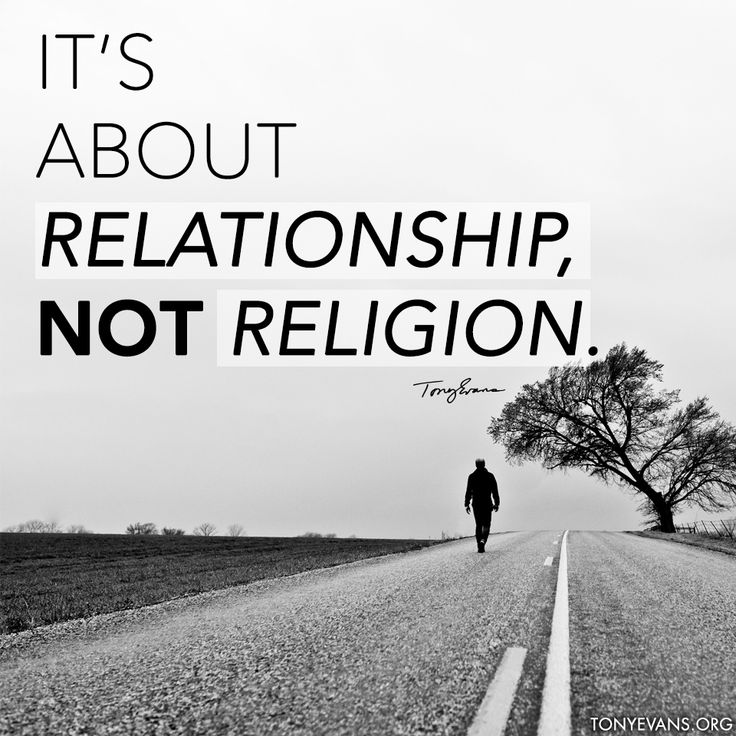 The thought arises: has love left the relationship? In fact, the best is just beginning: the body no longer responds to a partner with an increase in cortisol and a decrease in serotonin, and love finally protects against stress, and does not cause it.
The thought arises: has love left the relationship? In fact, the best is just beginning: the body no longer responds to a partner with an increase in cortisol and a decrease in serotonin, and love finally protects against stress, and does not cause it.
If in doubt because feelings have become less intense, try:
-
Embrace your partner's imperfect side. Psychologist Joy Davidson explains that at first we idealize the beloved - this is a kind of "honeymoon". When it passes, we discover flaws and decide that the person is "not the right one", sometimes unreasonably. The realization that with no partner the “honeymoon” will not last forever and no one will be perfect will allow you to build a long and close relationship.
-
Focus on friendship. If passionate love - both the intensity of feelings and sexual activity - can subside with time, then time only strengthens comradely love.
Relationships based on friendship, comfort, and shared interests last longer and are more satisfying. Fellowship and passion are not that far apart—attraction and attachment originate in the same areas of the brain, so by stimulating one type of love, we activate the other.
Problem #2. The partner is not perfect
If you have ever used Tinder, you know that you can swipe potential partners endlessly and each time it will seem that the next one will definitely be “the one”. Even if you are not a fan of dating and have never used such services, this mindset still affects your relationship - because we live in an era of emotional capitalism and perceive love as an investment that needs to be well managed.
Scientists have found that the expectations of marriage are now higher than ever - as well as the dissatisfaction with it, and called this "all or nothing" thinking. It's no surprise that trying to find the "right" person is unsettling because we're turning down other options and the choice is still not perfect. Increasingly, we choose not to make a choice at all—like that San Francisco engineer who went on 150 Tinder dates trying to find “the one,” but never made it past a couple of dates with any girl.
If you're not sure you've found the best match, try:
-
Give the relationship six months. Stracey Wochner, a psychotherapist who treats people with obsessive-compulsive relationship disorder, suggests postponing the decision to end or continue a relationship for six months—or at least one month if six seems too long. The more we doubt and try to gain confidence, the more confused in feelings, says the therapist. That is why it is worth giving yourself time to just date the person and not think about the solution - as soon as you stop painfully looking for an answer, it will come by itself.
-
Create shared goals. It is believed that those who have similar habits and interests are happy in love, and their absence leads to the idea that the partner is not suitable for us.
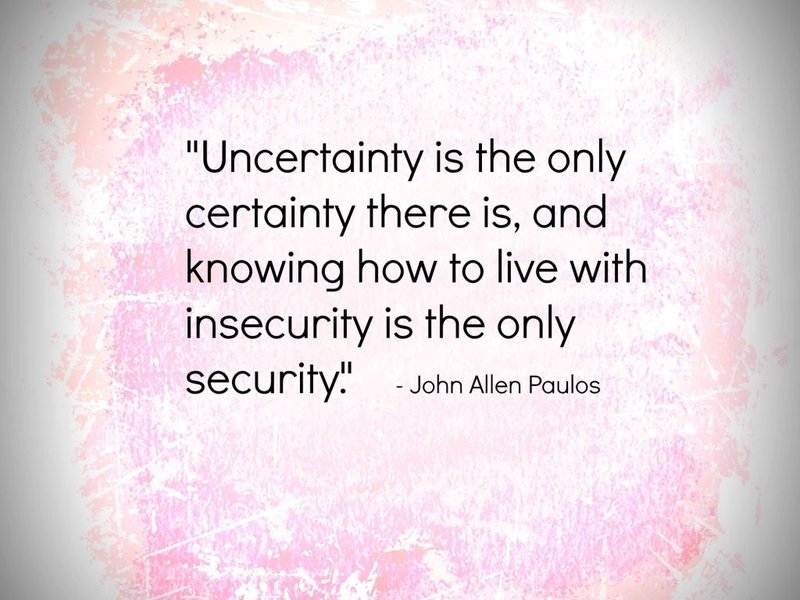 In fact, common values and goals are more important: religion and cultural traditions, the desire to raise happy children or save money for a house. “You can work together to set goals for a year, five, or even 10 or 20 years,” advises psychologist Stephanie Sarkis. “Working together on something strengthens your bond.”
In fact, common values and goals are more important: religion and cultural traditions, the desire to raise happy children or save money for a house. “You can work together to set goals for a year, five, or even 10 or 20 years,” advises psychologist Stephanie Sarkis. “Working together on something strengthens your bond.”
Problem #3. Sometimes sad
Mutual love makes us happy, but something is wrong with relationships that do not lead to a constant feeling of happiness. Or not? In fact, love can cause not only joy, but also sadness - and this is normal, writes psychotherapist Ilse Sand. After all, when we agree to a relationship, we also accept the risk of losing a loved one - due to separation or death. However, not all of us are good at dealing with negative emotions and the thought of loss. If the fear is too strong, we subconsciously do everything to avoid the loss, including sabotaging the relationship. Because of this, doubts may arise in a partner - and it is precisely when the connection with him is growing stronger, because the more intense the feelings, the greater the potential pain.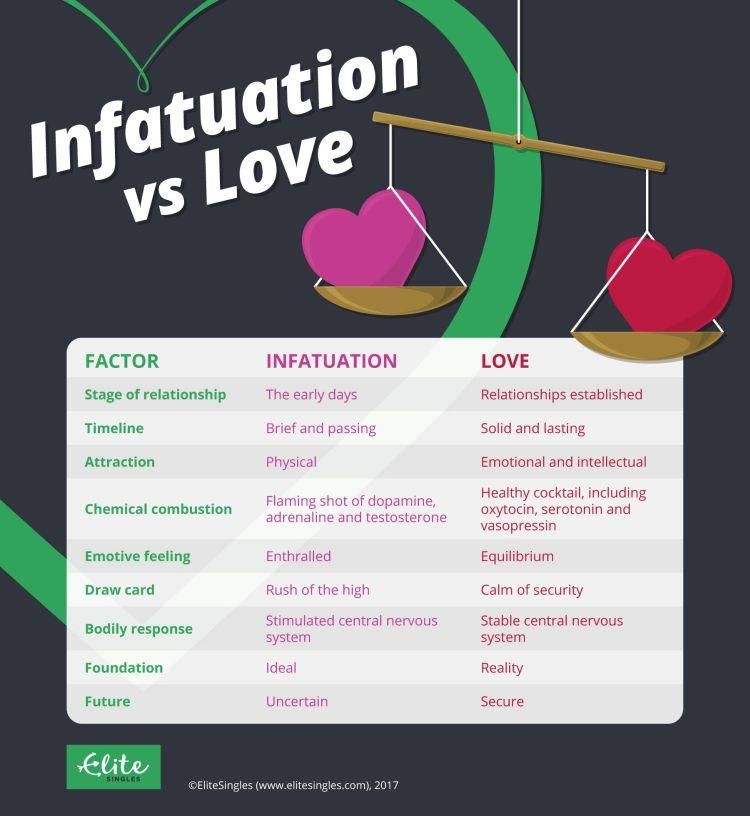
If you doubt your partner because you don't feel happy all the time, try:
-
Write a letter to your partner. To understand the relationship, Ilse Sand advises writing a farewell letter to a partner, but not sending it to the addressee. This will help you step back and see the situation for what it is. Maybe it's really not love? Or do you doubt the ghosts of the past and the fear of loss? Writing a letter is easy, the main thing is to speak sincerely, Sand advises, and gives such a list of questions as a guide.
- What was good about what you lost?
- Do you feel gratitude and for what?
- What was unpleasant in the relationship?
- What did you want from the person you are breaking up with?
- What was your contribution to this relationship?
- What do you think you missed?
- How would you like to see this relationship?
- If the one you are breaking up with was right now, how would you spend today together?
- What did you miss in this relationship?
- What would you wish to the one you are breaking up with?
- Search not for joy, but for meaning.
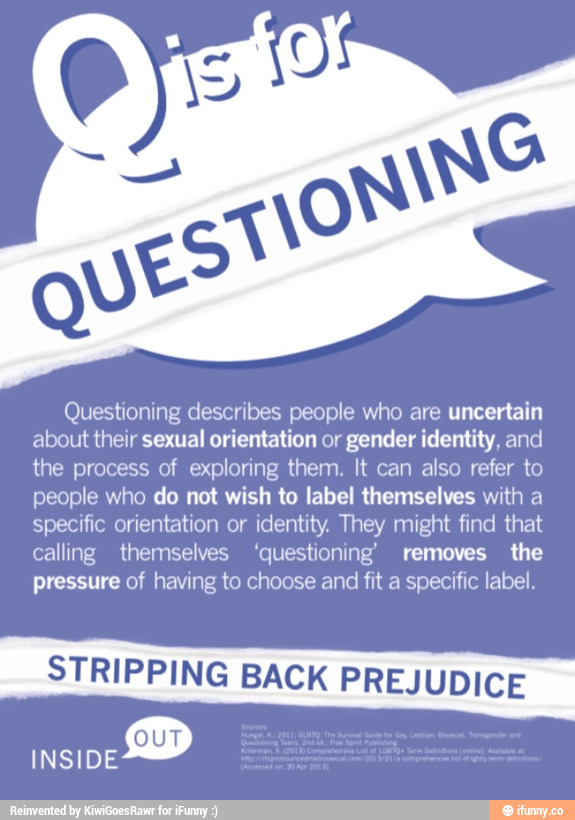
Learn more
